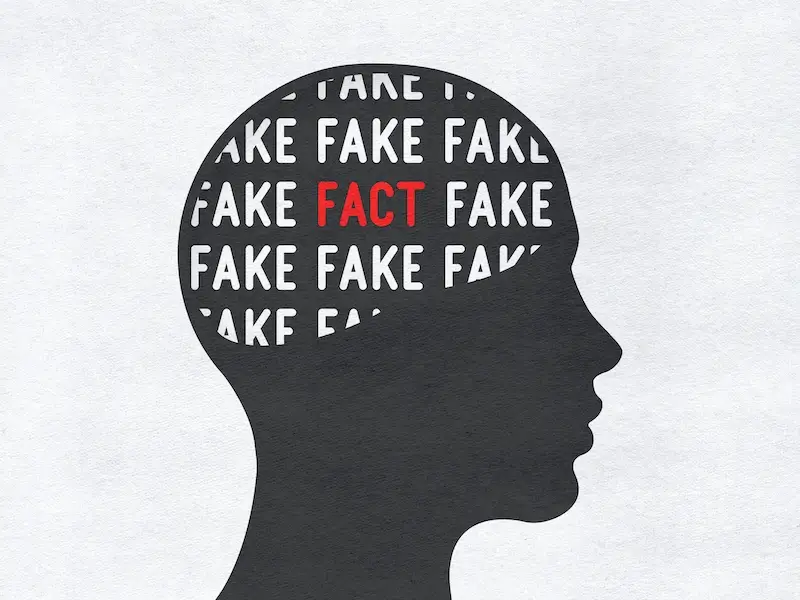
Mandela Effect: What Lies Behind False Memories
Table of Contents
Mandela effect is a mind phenomenon when an individual believes that an event or situation happened when it did not happen in actuality. It can also refer to a type of memory memorized entirely wrong. Thus, the Mandela effect may also cause a collective societal misunderstanding through incorrect memory remembrance.
There is always something mysterious and unexplainable about how our brain and memory work. Unlocking the secrets of your mind and phenomena related to the human mechanism of memorization can be a pretty befuddling undertaking. For example, some scientists believe that our brain’s memory capacity is unlimited. At the same time, there is always a question of why some individuals can memorize long strings of complex data while some may experience difficulties encoding names, dates, and other day-to-day information. So here’s a heads-up on what you need to know about false memories, how they can affect our life, what are Mandela effect examples, and whether inaccurate memories can benefit our cognition or imagination.
What is the Mandela effect?
Brain scientists who study mind functions that affect human behavior and responses in a given context state that our memories can be reshaped over time due to various factors. The Mandela effect is a phenomenon when you believe something happened but in actuality it did not.Since our memory is constructed from interconnected fragments, it sometimes might be the reason for information encoding and processing errors. If there is an information gap that does not allow you to reconcile or relate what is known to what is being observed, the brain automatically seeks to resolve it. At the same time, memory does not perform a function of distinguishing between true and false memories; it simply collects and stores information. The Mandela effect depends on the way our brains work to plan, organize, and give accurate meaning to the information. Thus, this effect can occur when disparities arise between what has been experienced and what has been heard or when information is not remembered with certainty.
True memories are intervened by a portion of new information obtained from the environment and processed by short or long-term types of memory, for example, photographic memory or the episodic type of memory. However, a system of beliefs and attitudes, as well as our imagination, can also affect the consistency of the connections of those fragments. Therefore, the memory mechanism may fail to discriminate whether our memories are real or imaginary. So, as a result, you can have false types of memories even not knowing that they are fictional or invented by your mind. This is why some categories of individuals, including Fiona Broome, remembered in detail of Mandela’s funeral procession in detail, which did not occur when they thought it happened. How else does this phenomenon manifest itself in ordinary life, and are there any symptoms of the effect? Let’s explore some famous Mandela effect examples.

What is the Mandela effect?
Mandela effect examples: Have you ever experienced them?
I Am Your Father
Probably, you will count on your memories, especially if people around you reported that they remember the same thing as you. But what if those memories aren’t true? Thus, fans of Star Wars will be upset, but the legendary phrase of Darth Vader does not sound the way we are used to, as the Vader did not address Luke by his name.
The Mandela effect and geography
Where is New Zealand located? There is one collective misleading opinion, as someone knows that it lies much to the south, and someone confidently says that New Zealand is located almost off the coast of Australia and, at the same time, in the northeast. So, you can check the map where one of the common Mandela effect examples is illustrated and compare the real location with the spot on the map where people mistakenly indicated the location of this island country.
TV examples (Berenstain Bears books and series)
A die-hard fan would state that in the name of this series for kids, it was always the “e” letter instead of “a.” So how is it possible to have such a crazy glitch, and where did the ending “stein” disappear? And was it ever real?
A movie that doesn’t exist
There is a myriad of people who still contend that they remember a film that has the name “Shazaam.” Why has this collective false memory episode sprung up? Why do so many individuals recount the same story and have a movie in their memory? There is no scientific explanation for this particular situation. So could this be a conspiracy theory?
Are there any new Mandela effects in 2022?
Since the world is an ever-evolving place with many things that we cannot explain or account for, new episodes of false memories on the general level may appear. Sometimes, it can be mind-blowing and hard to understand, and sometimes, the clear reasons for it can be found. But it is even more important to be able to detect when the encoded past events are the result of the effect.

How to Recognize False Memories
Sometimes, false memories can benefit the brain’s cognitive activity. Such a memory type reflects an earlier experience, activating some ideas and fresh concepts, boosts our vigilance, raises imagination, and becomes a great aid to the solving process of potential problems that may occur. However, it is still paramount to be capable of detecting which memories are real and which are not. But first, let’s explore some exciting theories why your brain may produce false episodes or events from the past. Of course, they are not scientific and not supported by facts, but they are also worth noting since this effect is a phenomenon beyond the ordinary, so its key roots can vary and also impress.
Thus, there is a theory of an infinite number of multiple alternative worlds. They exist parallel to each other, however, sometimes they can merge, and it is believed that the memories can be fabricated due to such interaction and become crashed. A conspiracy theory and a mass influence on a global scale can indeed be considered as the source of the Mandela effect. That is why many people probably may remember the wrong dates of famous events, such as Mandela’s death. Sometimes, people just grasp some past facts from others who are not direct witnesses to what happened and actively retell lies or forms of dogmas, politely saying. Thus, a certain number of people suddenly start stating that they remember a certain phenomenon that took place in the past. They describe the details in the same way, but this is only their opinion that was formed due to the range of the same factors. But in fact, it turns out that nothing like that happened. The event, which is remembered by a whole group of people, was completely different. Or it did not exist at all. The results are mass internal dissonance and the appearance of the Mandela effect.
Some can even charge that a particle accelerator, known as the Hadron Collider, and an array of experiments are changing the world, and the effect is the consequence. Or it’s simply a program that crashes in the Matrix and a glitch. Speaking of more mundane and simple reasons, the Mandela effect is the result of banal inattention, reduced critical thinking, and troubles with memory. Thus, we can remember the picture in general but forget the small details. Also, we may confuse what we learned from the media with what was in the original source: the media do not always check the facts. Also, it must be taken into account that any altered memories, a mixture of present and past, as well as fictional and real events, can be just disorders and memory impairment. The mind phenomenon can be the result of vague or strongly distorted memories. So this is another reminder of how it is pivotal to improve memory and critical thinking.
If you begin to suspect that memory is fake, there are a few simple steps that can disprove or confirm it. So constantly evaluate your memories, check evidence, and talk to someone who could also be a witness to the same event or situation. Next, you can dive into your sensory memory and try to retrieve emotions and feelings that are connected with a particular memory you suspect is fake. Remember that mind storage does not always hold or recollect information and data accurately. Even people who create a memory palace or can easily handle some extra cognitive tasks can also experience some kind of misleading, as no one is insured.
The Internet Age
How else is it possible to explain the collective phenomenon of memory inaccuracy? People are mostly influenced by external information through the media, especially the Internet. The digital era is when episodes of false memories are detected more often, as our minds can be manipulated easily, and tons of data portions provoke lots of stimuli. Gaining those stimuli, the brain and memory storage become clogged, and the process of connections creation begins to betray us, so misleading and unreal memories are created.
Do I need to take a Mandela effect test?
It can always be interesting to see if you live under the influence of collective failures and glitches in memory. So you can always have some time for solving tests or quizzes to understand how tricky your memory is.
FAQ
What is another name for the Mandela effect?
Memories that are false and, at the same time, collective can be recognized as another meaning of the effect.
What is the most famous Mandela effect?
The phrases of politicians that they did not utter, the names of books that are incorrect, or generally, the existence of something, such as a movie Shazaam, which in fact is unreal, are the brightest examples.
Can false memories feel real?
Many individuals may believe in something and have real memories of it even if it never happened.